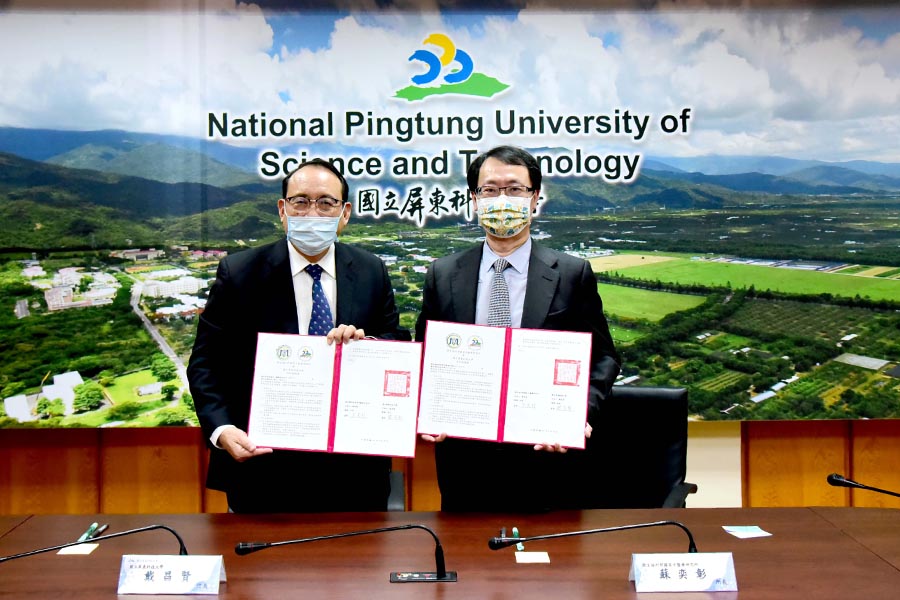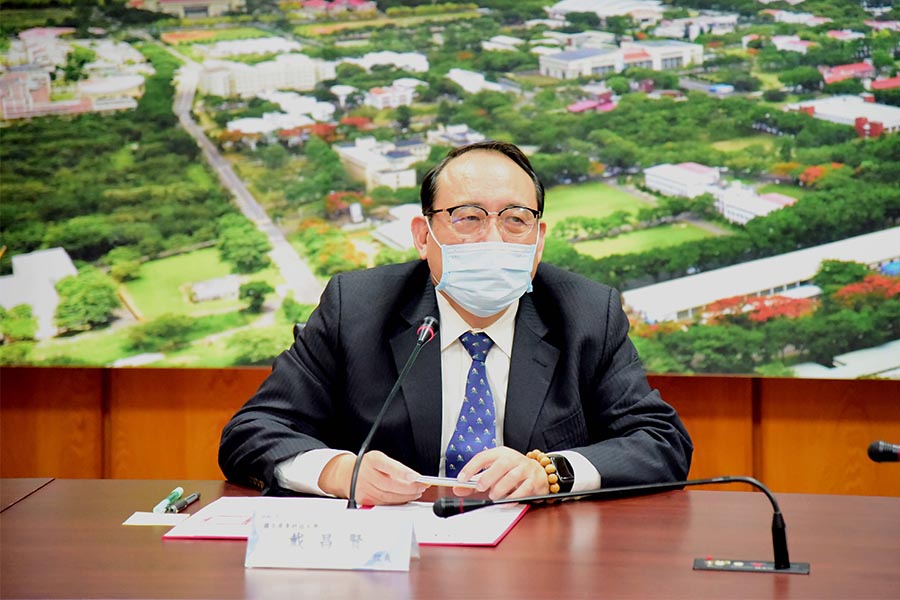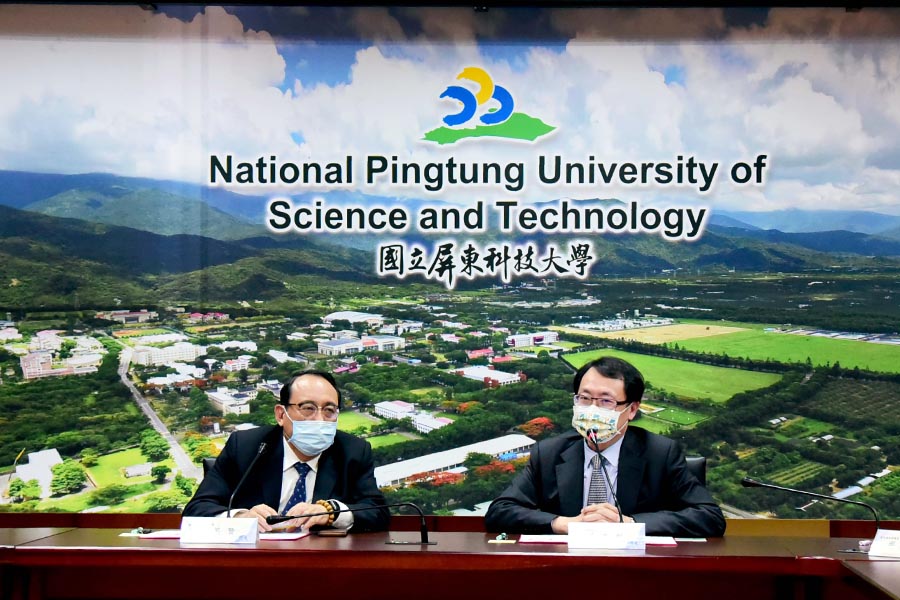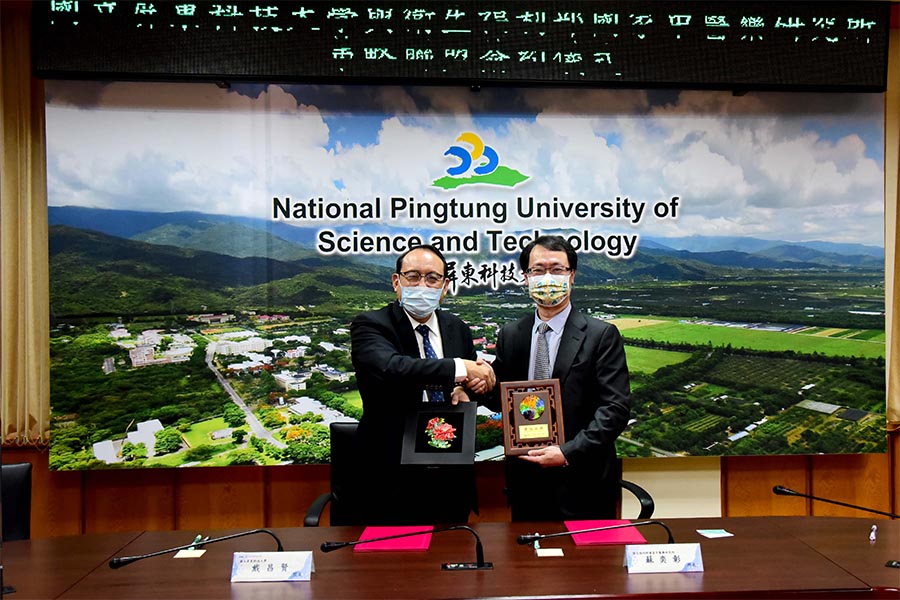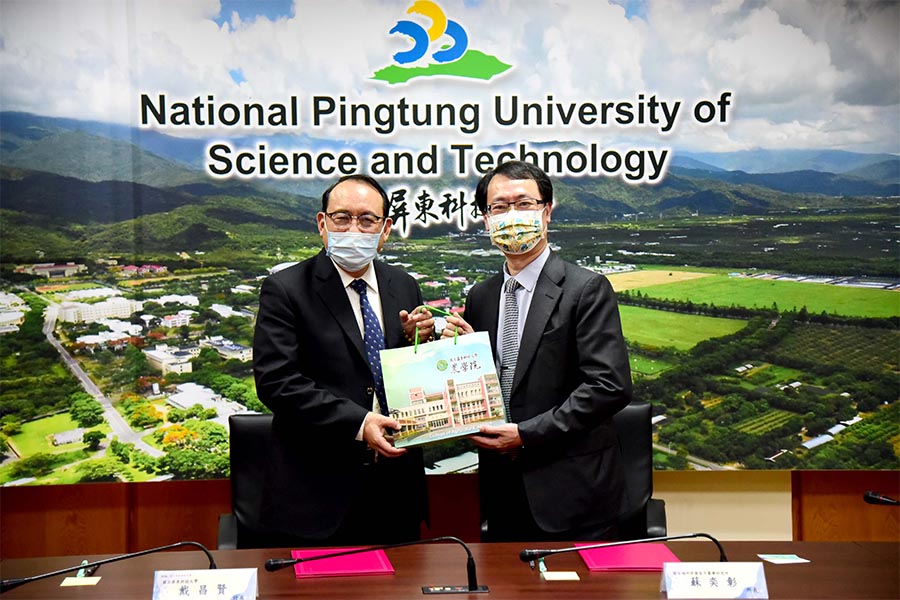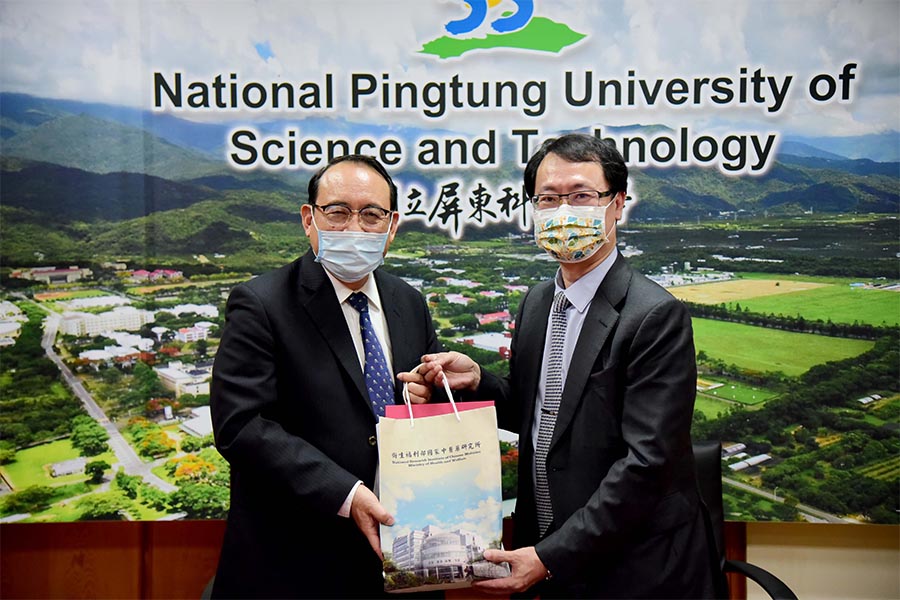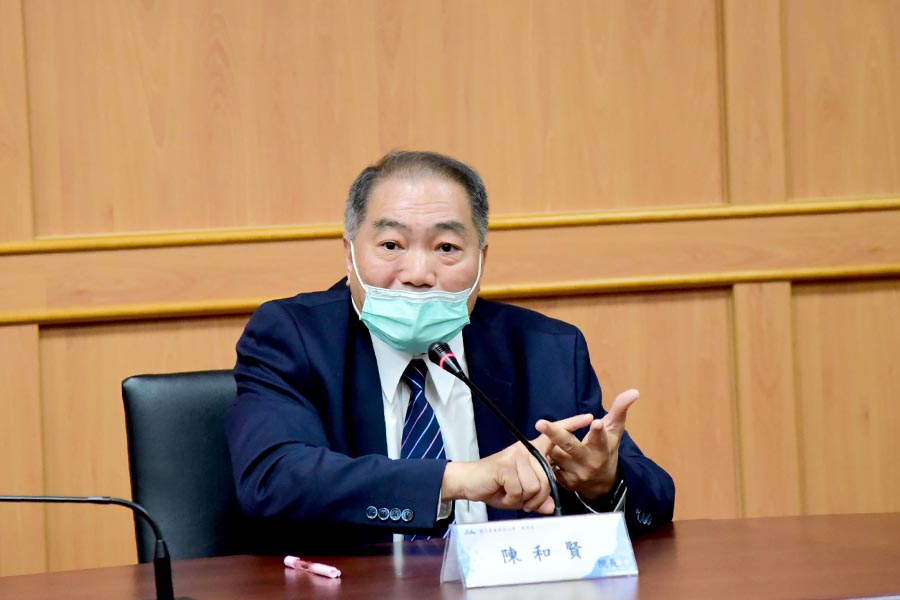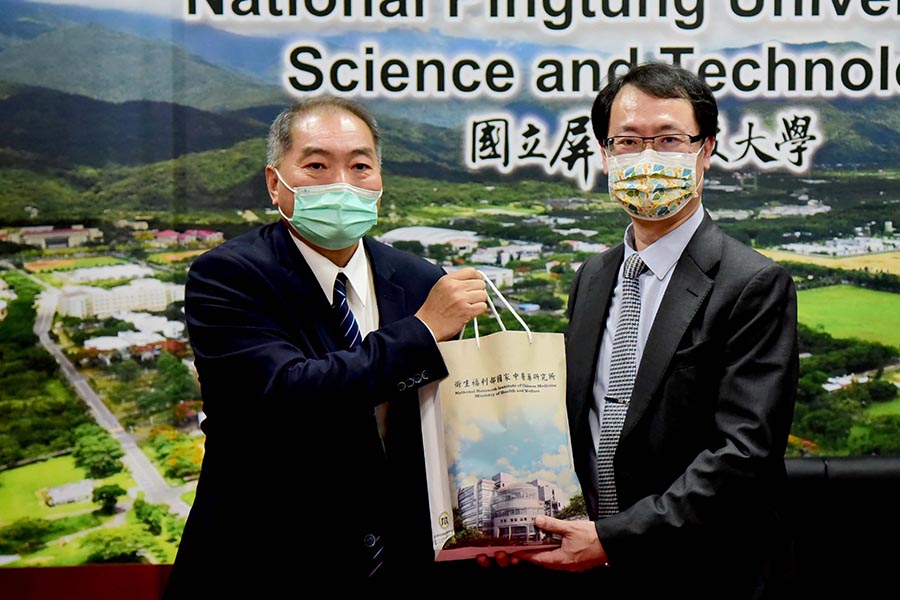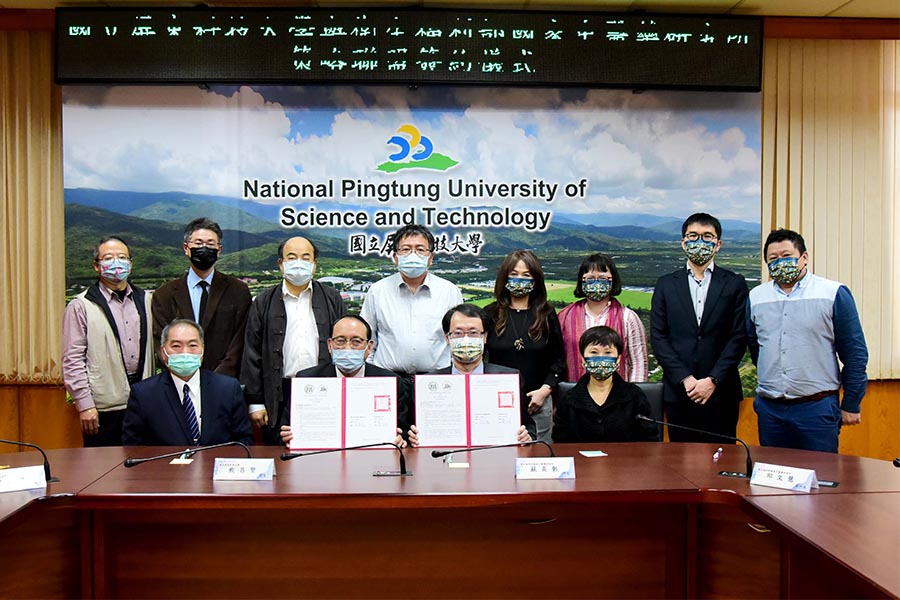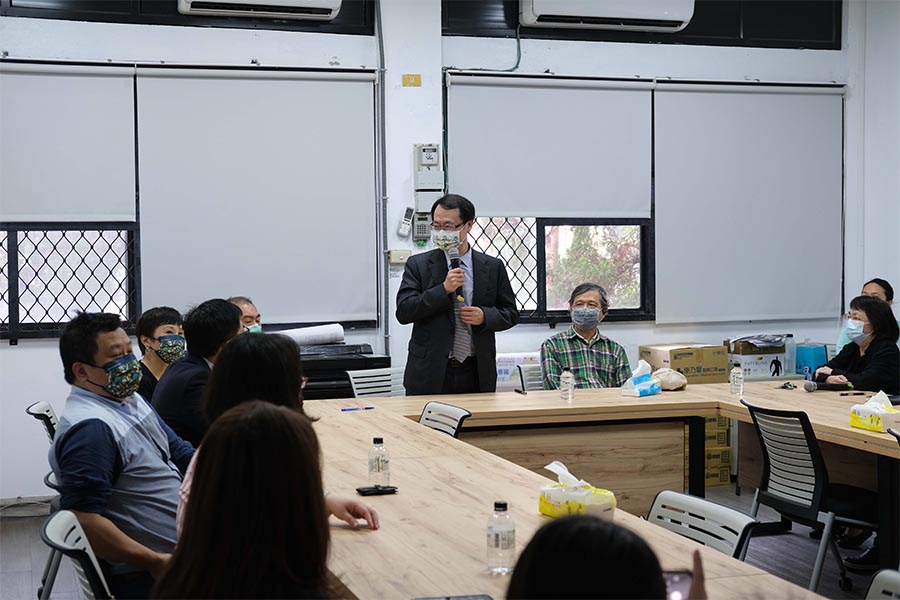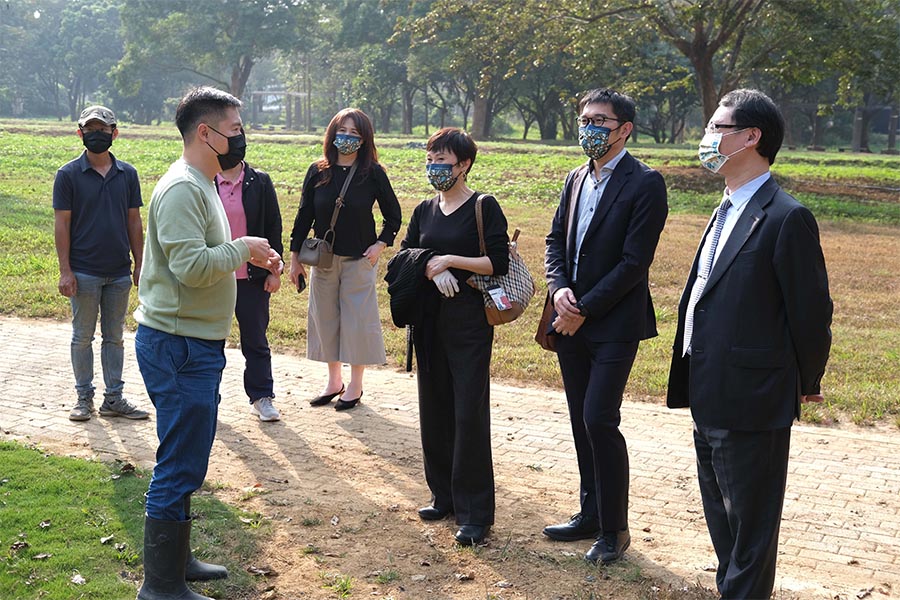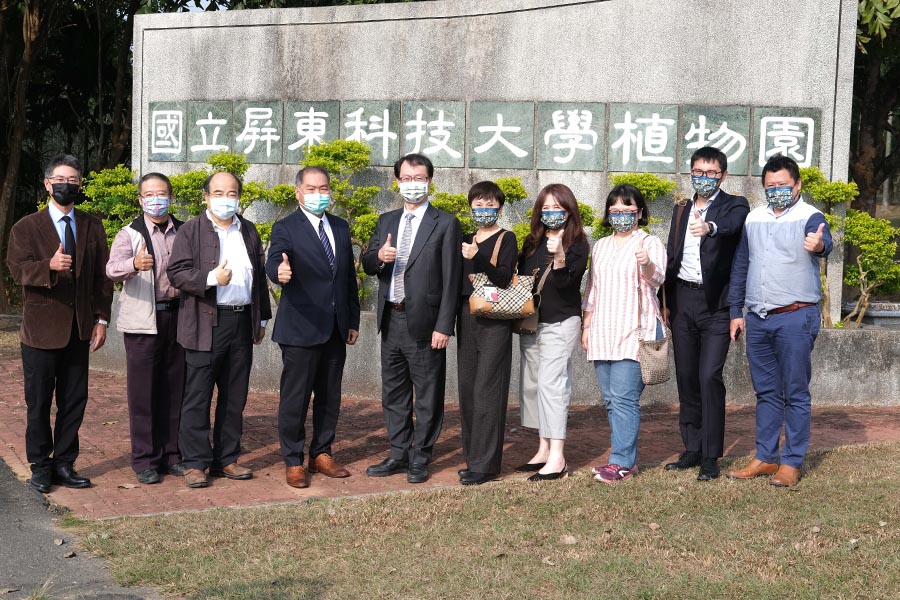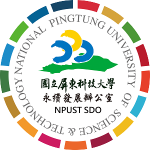The Ministry of Health and Welfare’s National Research Institute of Chinese Medicine (NRICM) and National Pingtung University of Science and Technology (NPUST) signed a strategic alliance agreement on January 19, 2022 with the aim of developing new cultivation technology for Chinese medicinal herbs.
NPUST President Chang-Hsien Tai led a delegation from the university, which include College of Agriculture dean, Ho-Hsien Chen, R&D Director, Yo-Chia Chen, Department of Plant Industry director, Hung-Liang Lai and a Chinese Medicine R&D team. Representatives from the MOHW National Research Institute of Chinese Medicine included the institute director, Yi-Chang Su, deputy director, Wen-Fei Chiou, and a number of research personnel. In recent years, many traditional Chinese medicines have proven effective in the prevention or treatment of certain diseases, including COVID-19. Recently the National Research Institute of Chinese Medicine even developed two prescription Traditional Chinese medicines (NRICM101 and NRICM102) which were shown in clinical trials to be effective against the new coronavirus. The results are an important milestone in traditional Chinese medicine development.
At the signing ceremony, NPUST President Chang-Hsien Tai said: “Among the country’s six major industries, Precision Health has been receiving great attention. NPUST hopes that the agricultural science and technology developed on campus will continue to improve under the advanced guidance of all its fields of research. We also hope that by cooperating with NRICM, we will experience more academic advancements and also see broader employment opportunities for students. I am very grateful to dean Ho-Hsien Chen for his efforts, and expect to see the College of Agriculture enjoy even greater development in the future.” NRICM Director Yi-Chang Su remarked that “traditional Chinese medicine is the medicine that is closest to the people. It is used for medical treatment, health maintenance, and health care; while modern medicine only focuses on treatment. TCM has certain advantages in health maintenance and health care, and is closely related both to food culture and agriculture. However, it is limited in that it depends on imported medicinal materials and faces challenges related to climate change. Consequently, it has been difficult to reach the goal of connecting the cultivation of Chinese medicinal materials to clinical application. We look forward to cooperating with NPUST under the nationally promoted framework of Precision Health, Precision Medicine and Precision Agriculture. Together, we will jointly work towards excellent results.”
The current cooperation between the NPUST College of Agriculture and the NRICM will focus on the development of plant cultivation technology for Chinese medicinal herbs—an area in which the team from the college excels at. Nationally, Taiwan has a number of GMP certified Chinese medicine factories, most of which rely on imported medicinal materials. Here, the team from NPUST can play a key role in guiding farmers in the cultivation of Chinese medicinal herbs, teaching them planting techniques, and introducing good agricultural practices so that they can meet the standards of the the production and sales history verification processes. On one end, this will add value to the domestic Chinese herbal medicine industry and benefit farmers, on the other, it will allow consumers to feel more at ease knowing that they are using domestic Chinese herbal medicines. Meanwhile, it will also ensure a stable supply of medicinal materials for the domestic Chinese medicine industry. The team is also conducting research related to climate change and working to develop cultivation technology to improve the efficacy of ingredients. The sustainable development of the Chinese herbal medicine industry is something that the university is focused on as of its commitment to the UN SDGs.




